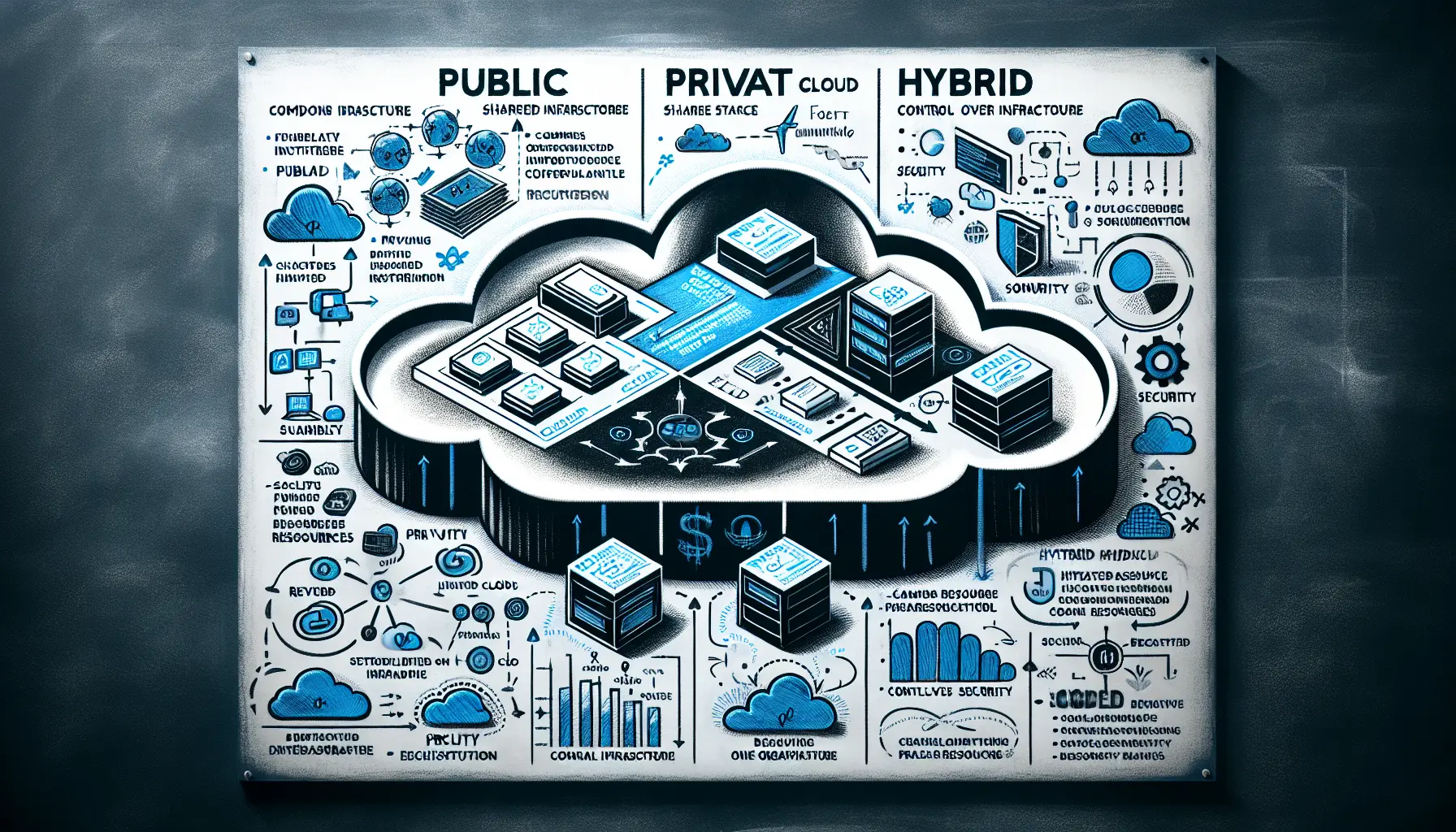
Public vs Private vs Hybrid Cloud: A Comprehensive Comparison of Cloud Types
Estimated reading time: 5 minutes
Key Takeaways
- Scalability and Flexibility: Cloud computing enables on-demand scaling of IT resources.
- Public Cloud Benefits: Offers cost-efficiency with minimal upfront investment.
- Private Cloud Advantages: Provides enhanced control and security for sensitive data.
- Hybrid Cloud Flexibility: Combines public and private clouds for maximum flexibility.
- Strategic Decision: Choosing the right cloud type depends on organizational needs.
Table of Contents
Understanding the Essentials of Cloud Computing
Cloud computing revolutionizes how businesses access and manage IT resources. Whether you're running a startup or leading an enterprise, choosing between public, private, and hybrid cloud models impacts everything from costs to security. Let's break down these options to help you make an informed decision for your organization.
What Sets Different Cloud Types Apart?
Cloud computing delivers computing services over the internet, enabling organizations to scale resources on demand. Each cloud type serves distinct business needs:
- Public clouds offer shared infrastructure managed by providers like AWS or Azure.
- Private clouds provide dedicated environments for single organizations.
- Hybrid clouds combine both approaches for maximum flexibility.
Public Cloud: Scalability and Cost-Efficiency
Public clouds run on shared infrastructure managed by major providers. Organizations access resources through the internet, paying only for what they use.
Key Benefits:
- Minimal upfront investment
- Rapid scaling capabilities
- Built-in maintenance and updates
- Access to advanced services like AI and machine learning
Limitations:
- Limited control over infrastructure
- Potential security concerns for sensitive data
- Compliance challenges in regulated industries
Private Cloud: Control and Security First
Private clouds offer dedicated environments, ideal for organizations with strict security requirements or specific compliance needs.
Advantages:
- Complete control over infrastructure
- Enhanced security and compliance options (Learn more)
- Customizable performance settings
- Predictable costs for steady workloads
Challenges:
- Higher initial investment
- Requires internal expertise
- Limited scalability compared to public options









